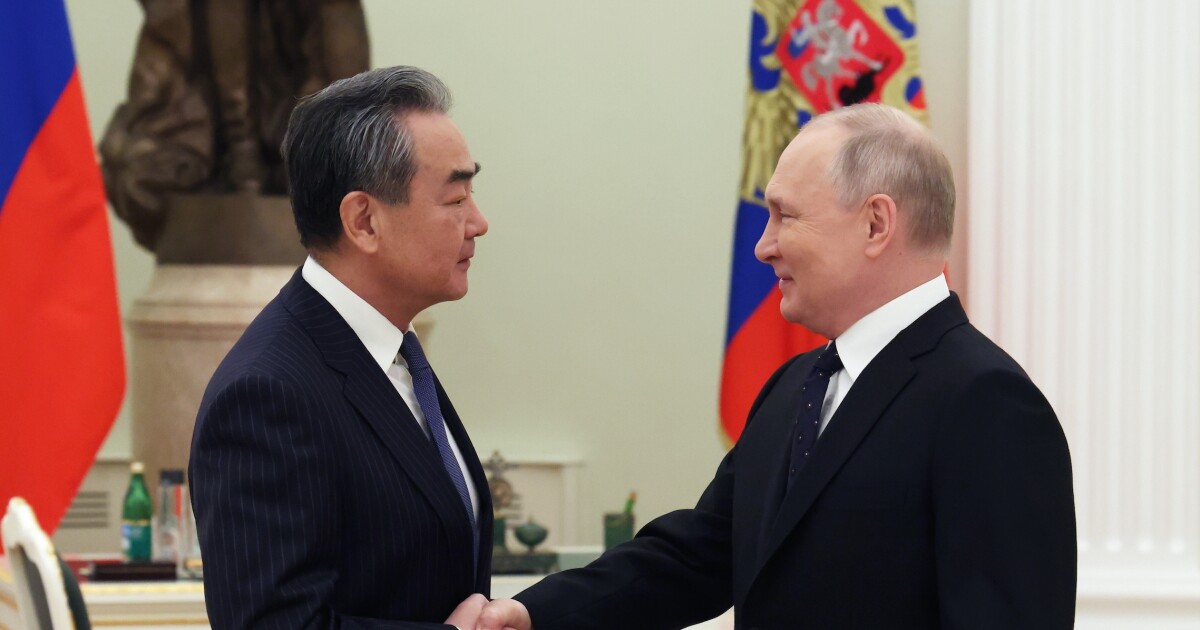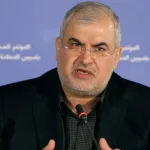

Russia’s invasion of Ukraine could spark a nuclear arms race in the Indo-Pacific if the Kremlin emerges victorious from the war, according to current and former Western officials.
“The broader strategic signal would be devastating,” former NATO chief strategic policy analyst Stefanie Babst said. “And I’m absolutely sure that the administration in Washington is fully aware of that.”
US SEEKS STRATEGY FOR UKRAINE WAR THAT MANAGES FEAR OF CRIMEA SHOWDOWN
That danger arises from Russian President Vladimir Putin’s reliance on his nuclear arsenal to impose limits on the quality of the military assistance that the United States and NATO provide to Ukraine. That threat has offered Chinese General Secretary Xi Jinping a live experiment in nuclear brinkmanship when it comes to Taiwan or the South China Sea.
“I think Iran is watching, I think North Korea is watching, I think China is watching, and I think a few non-nuclear states and some nonstate entities are also watching,” retired Air Force Gen. Philip Breedlove, a former NATO supreme allied commander, told the Washington Examiner. “They are watching that if you have a nuclear weapon and you threaten America, they back up.”
North Korea’s Kim Jong Un may have drawn that conclusion already, judging from his repeated displays of “tactical nuclear weapons operation units” and the regime’s stated belief that nuclear weapons enable them to “take initiative at the outset of war, completely dampen the enemy’s war spirits, prevent protracted hostilities and preserve one’s own military muscle.”
South Korea countered by reminding Kim that Seoul “can have our own nuclear weapons pretty quickly, given our scientific and technological capabilities,” as President Yoon Suk-yeol put it last month. Japanese Prime Minister Fumio Kishida has expressed “a strong sense of urgency that Ukraine today, maybe East Asia tomorrow.”
“China will probably see that nuclear saber-rattling has limits to its credibility,” said a Defense Department strategist. “There’s also the potential that China sees this, and its response could very well also be, ‘Well, maybe that’s still a viable tactic, but you have to do more than just talk.’ Maybe you have to do nuclear demonstrations early.”
The existing stockpiles of ammunition available to Ukraine are running low. U.S. forces could face a similar shortage in a prospective conflict against China, but it is not directly exacerbated by the war in Ukraine, according to the latest public analysis of that supply chain problem.
“They’re very different wars, and they generally will require different elements of the industrial base,” Center for Strategic and International Studies Senior Vice President Seth Jones told the Washington Examiner. “The vast majority of systems we’re providing Ukraine are not the ones we need in an Indo-Pacific fight.”
Still, U.S. allies in the region will watch with interest to see whether American officials and companies can meet the political and production demands presented by the war. Ukraine relinquished the nuclear arsenal it inherited from the Soviet Union in exchange for security guarantees from the United States, Russia, and the United Kingdom.
“If Russia is seen to be able to defeat Ukraine — despite U.S. assistance, despite NATO assistance — then the obvious answer then is like, ‘Well, OK, so, all the industrial powerhouses of the West wasn’t enough to save Ukraine, then the only way to deter a much larger power [would be] nuclear weapons,” the Pentagon strategist told the Washington Examiner.
Breedlove agreed. “There’s a couple of countries out there in the world that are looking at this and saying, ‘We might need to get nuclear weapons,’” the retired Air Force general said. “That’s our allies. On the bad side of the ledger, I think there are a lot of people watching as well. They see how the United States is deterred by the threat of nuclear weapons, and they probably are saying this is something we need to have in our kit-bag.”
CLICK HERE TO READ MORE FROM THE WASHINGTON EXAMINER
And that scenario would amount to a brave new world of nuclear proliferation, according to U.S. officials.
“Put nukes in Japan, [hypothetically], and then North Korea would start thinking about what’s the best way of targeting those areas. And, suddenly, the prospect of nuclear war and the ability for any side to control [the risk of] nuclear war is a lot less, right?” the strategist said. “You can’t just say, ‘Hey, this is just a conventional fight only.’ Having nukes in that area would suddenly make the prospect of nuclear war … come a lot faster if any conflict started.”





